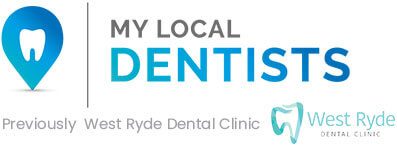
Dental implants are a popular method for replacing missing teeth, but they’re not suitable for everyone. If you are considering a dental implant, you will need to schedule an initial consultation with an experienced implant dentist so they can determine if you are a suitable candidate. This article gives a few tips on preparing for dental implants before surgery and what to expect after to help your implant journey run without a hitch.
As the consultation is a necessary vital step before getting dental implants, we recommend preparing for your appointment. Not only will this help it go smoothly, but it enables you to get as much information as you can from the dentist, so you know what to expect.
How to prepare for your dental implants consultation?
- Organise your medical history – Replacing missing teeth with dental implants requires surgery. Your dentist must be aware of your medical history to determine if you are sufficiently healthy to undergo surgery. Your medical history can affect your recovery and impact healing. Your dentist needs to know of any existing medical conditions, medications you may be taking, and any allergies to plan your treatment. Go to this link.
- Think about questions – Consider questions to ask your dentist about dental implants before and after surgery. Do you need a tooth extraction or a bone graft before having implants placed? What happens during the procedure? How long does it take to recover from dental implant surgery? Your dentist should be able to show you some dental implants before and after photos so you can see the results for yourself. And, finally, don’t forget to ask about the cost and payment plans.
- Expect a thorough dental examination – Lastly, come to the consultation fully prepared by brushing and flossing your teeth. The dentist will carry out a thorough examination to check for signs of tooth decay or gum disease that may have to be addressed before going ahead with a dental implant. You can also expect to have x-rays and even CBCT scans taken to determine the density of your jawbone and the location of vital nerves and sinuses.
Dental implants before and after surgery – things to put in place
Stock up your larder and fridge
While dental implant surgery is minor in most cases, you’re probably not going to feel like walking around a supermarket or cooking a meal afterwards. So stock up on plenty of soft nutritional foods, soups, and drinks that will allow you to rest after the procedure and not skip a meal. You will need to switch to a soft diet for a few weeks after implant surgery and even longer if you have a bone graft.
Book a couple of days away from work
While some patients can return to work the next day, some feel more comfortable taking a day off to recuperate. You need to avoid strenuous physical activity and sports, so no going to the gym for the first week.
Ask about sedation options
Don’t be embarrassed about feeling nervous about implant surgery. We encourage patients to speak out so we can make their experience as pleasant as possible with sedation if required.
So, that’s what to do before getting dental implants. What about after?
 It’s normal to feel a little sore once the anesthetic effects have worn off.
It’s normal to feel a little sore once the anesthetic effects have worn off.
Depending on how long your surgery took, you may also have some swelling and facial bruising.
The best way to help your dental implants heal is to follow the post-op instructions given to your by your dentist.
Rest and nutrition are essential in the first week following surgery.
If you experience any pain or complications, don’t hesitate to contact your dentist for advice.
Ready to restore your smile with dental implants?
Why not schedule a FREE dental implants consultation with the experienced team at My Local Dentists West Ryde by calling us on (02) 9809 7000 and take the first step toward your new smile.
Note: Any surgical or invasive procedure carries risks. Before proceeding, you should seek a second opinion from an appropriately qualified health practitioner.
References
PubMed Central – Risks and Complications Associated with Dental implant Failure
https://www.ncbi.nlm.nih.gov/pmc/articles/PMC7518499/
Healthline – Is It Common to Experience Pain After Getting Dental Implants
https://www.healthline.com/health/dental-and-oral-health/dental-implant-pain
